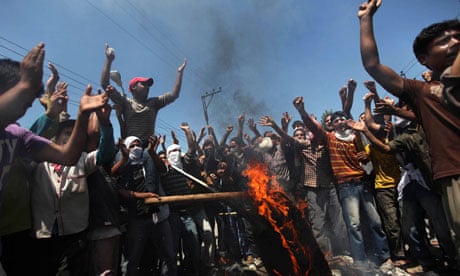For a man who has devoted a significant part of his life to documenting "how little things can make a big difference", Malcolm Gladwell is surprisingly dismissive of the power of social networking to effect change. In the latest issue of the New Yorker, he writes that the role played by Facebook and Twitter in recent protests and revolutions has been greatly exaggerated.
Gladwell's argument is that social networks encourage a lazy activism that will only extend as far as "liking" a cause but not actually doing anything about it. This is because social networks are built around weak ties, where real activism needs strong bonds. Citing the American example, he points out that "events in the early 1960s became a civil-rights war that engulfed the South for the rest of the decade – and it happened without email, texting, Facebook, or Twitter."
Gladwell is right to be sceptical of social media's rah-rah brigade. Before the famous "Facebook revolution", Iran was regularly said to be in the middle of a blogging revolution. Protests everywhere from Iceland to Egypt are attributed to the organisational abilities afforded by social networking sites. Universities across the west offer modules on new media and social conflict. The fact that a Facebook group is only an updated version of nailing your thesis to a church door is conveniently ignored as the world hails the power of technology.
But in claiming that all social networks are good for is "helping Wall Streeters get phones back from teenage girls", Gladwell ignores the true significance of social media, which lies in their ability to rapidly spread information about alternative points of view that might otherwise never reach a large audience. Gladwell quotes Golnaz Esfandiari in Foreign Policy as asking why "no one seemed to wonder why people trying to co-ordinate protests in Iran would be writing in any language other than Farsi". The answer, as supplied by a friend from Tehran in June last year, is simple: "We need to be seen and heard by the world, we need all the support we can get. If the governments [of the west] refuse to accept the new government, it's gonna be meaningful for the movement, somehow."
A more recent example is Kashmir, where this summer's protests gained widespread media coverage both in India and internationally. But Kashmir has been protesting for 20 years, with some of the biggest demonstrations occurring in 2008. What changed this year is that urban, middle-class India, traditionally uninterested in news from Kashmir except when we're at war with Pakistan, was for the first time able to see and hear the other side of the story. Facebook users in India rose from 0.7 million in summer 2008, to 3 million in 2009, to 13 million today.
On Twitter, it is possible to follow journalists tweeting live from Srinagar. On Facebook, it is hard to avoid mentions of Kashmir or links to articles on websites you wouldn't otherwise have heard of. YouTube is littered with videos of protests in Kashmir. And when clips of human rights violations are taken down, Facebook is where you find new links.
The mainstream press in India, like its middle-class readers, is nationalistic and unquestioning on the subject of Kashmir. Allegations of human rights abuses are rarely reported, let alone investigated. But this year, even the Times of India, purveyor of "sunshine news", published a report claiming that for the first time, more civilians in Kashmir had been killed by the Indian state than by militants.
"We seem to have forgotten what activism is," writes Gladwell. If activism is defined only as taking direct action and protesting on the streets, he might be right. But if activism extends to changing the minds of people, to making populations aware of what their governments are doing in their name, to influencing opinion across the world, then the revolution will be indeed be tweeted.
